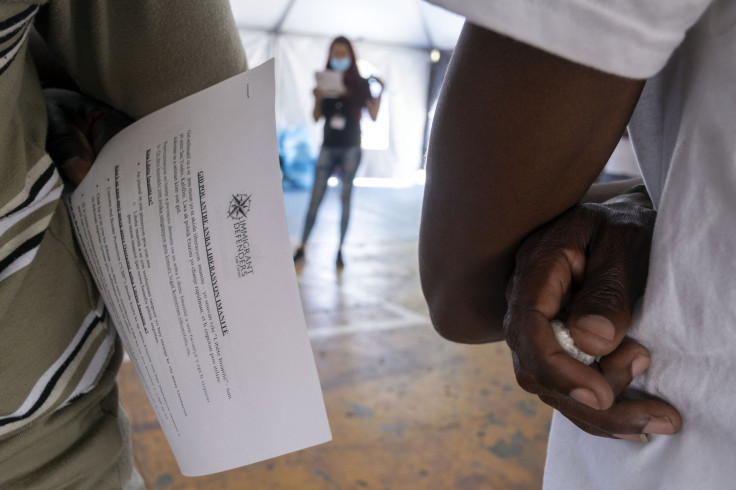
During the campaign trail, Donald Trump vowed to end the CHNV parole program, which allows migrants from four countries (Haiti, Cuba, Nicaragua and Venezuela) to receive work permits and a two-year authorization to live in the U.S. "Get ready to leave because you're going to be going out real fast," said the President-elect in a Fox News interview in September.
He also used the interview to argue that, despite holding legal status for two years, parole recipients are "illegal immigrants" who should not be in the country, comments that were echoed by his running mate JD Vance in October, who labelled parole programs "mass grants."
On Wednesday, House Republicans laid the groundwork for the possible suspension of the plan by releasing a 14-page report which alleges "rampant fraud and abuse within the Biden-Harris Administration's unlawful Cuba, Haiti, Nicaragua, and Venezuela (CHNV) Parole Program."
"Through CHNV, up to 30,000 aliens each month—who otherwise have no basis to enter the country and who have "a supporter" in the United States—can bypass the U.S. border and fly directly into the country on commercial flights to be granted parole for two years," said the House Judiciary GOP through it's official X account.
The post also added that "more than 531,000 Cubans, Haitians, Nicaraguans and Venezuelans have entered the U.S. through this unlawful program."
🚨 𝐍𝐄𝐖 𝐑𝐄𝐏𝐎𝐑𝐓: 𝐓𝐰𝐨 𝐘𝐞𝐚𝐫𝐬 𝐨𝐟 𝐭𝐡𝐞 𝐁𝐢𝐝𝐞𝐧-𝐇𝐚𝐫𝐫𝐢𝐬 𝐀𝐝𝐦𝐢𝐧𝐢𝐬𝐭𝐫𝐚𝐭𝐢𝐨𝐧'𝐬 𝐅𝐫𝐚𝐮𝐝-𝐑𝐢𝐝𝐝𝐞𝐧 𝐏𝐚𝐫𝐨𝐥𝐞 𝐏𝐫𝐨𝐠𝐫𝐚𝐦
— House Judiciary GOP 🇺🇸🇺🇸🇺🇸 (@JudiciaryGOP) November 20, 2024
This report details the rampant fraud and abuse within the Biden-Harris Administration's unlawful Cuba, Haiti,… pic.twitter.com/TGZo1pNgKY
Citing an internal Department of Homeland Security (DHS) analysis, the report itself highlights evidence of fraudulent activity, including repeated use of Social Security numbers, addresses, and phone numbers in supporter applications. The analysis also identified instances of sponsorship applications submitted on behalf of minors and disproportionate numbers of females, raising concerns about potential human trafficking.
The report goes on to contend that DHS has approved supporters with fraudulent documents or those with questionable financial means, including individuals who rely on public assistance. Additionally, it claims some approved supporters were themselves temporary visa holders, parolees, or recipients of Deferred Action for Childhood Arrivals (DACA), creating a potential for chain migration.
The report notes that DHS temporarily paused the program in July 2024 due to fraud concerns but resumed it two months later despite identified vulnerabilities. Republicans argue that the administration's approach undermines federal immigration law, which limits parole to urgent humanitarian or significant public benefit cases assessed individually.
House Republicans assert that the program's design and implementation prioritize facilitating immigration over addressing fraud prevention and public safety. They also believe its part of a bigger plan by the Biden administration to let undocumented immigrants enter the country:
"The Biden-Harris Administration's willingness to cast aside the best interests of Americans has enabled fraud, undermined national security, and endangered public safety—all in favor of ensuring that hundreds of thousands of otherwise illegal aliens can enter. Communities across the country have been negatively affected by the influx of aliens under this Administration, including the more than half a million CHNV parolees.
The Biden administration has defended the program as a lawful response to regional migration pressures.
© 2025 Latin Times. All rights reserved. Do not reproduce without permission.





